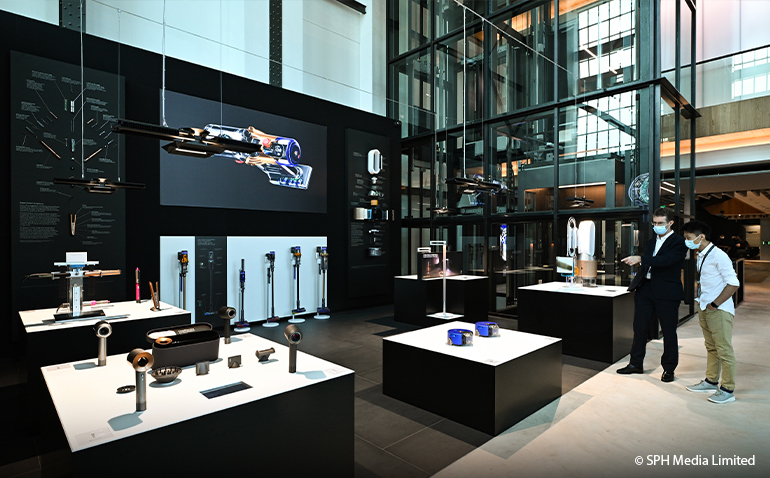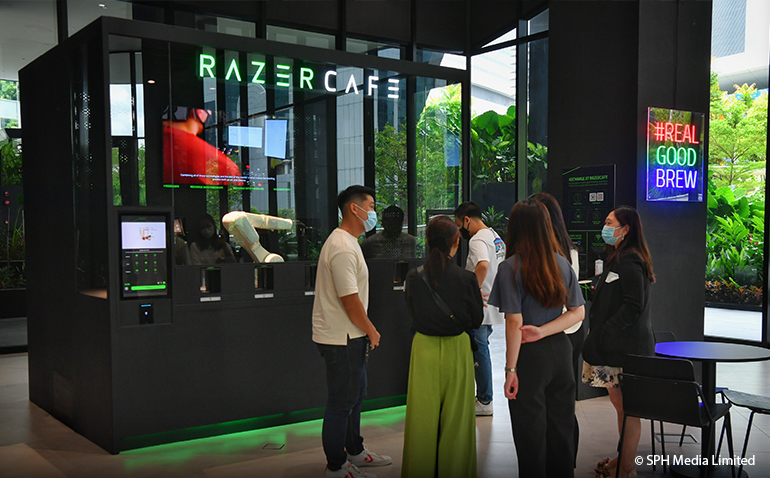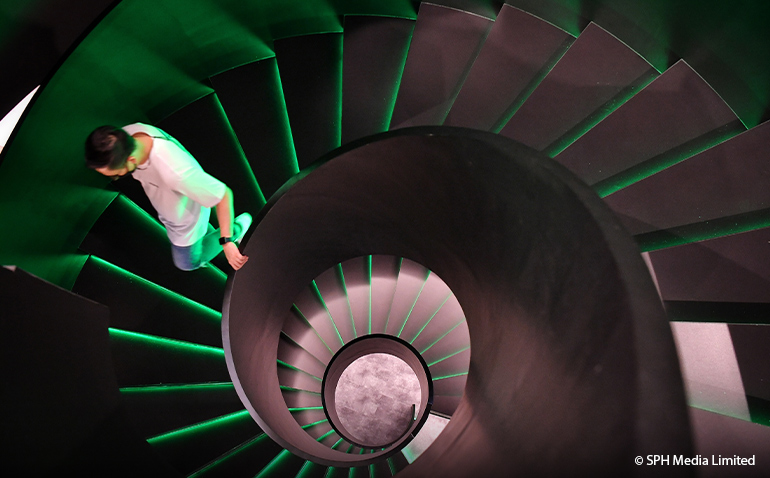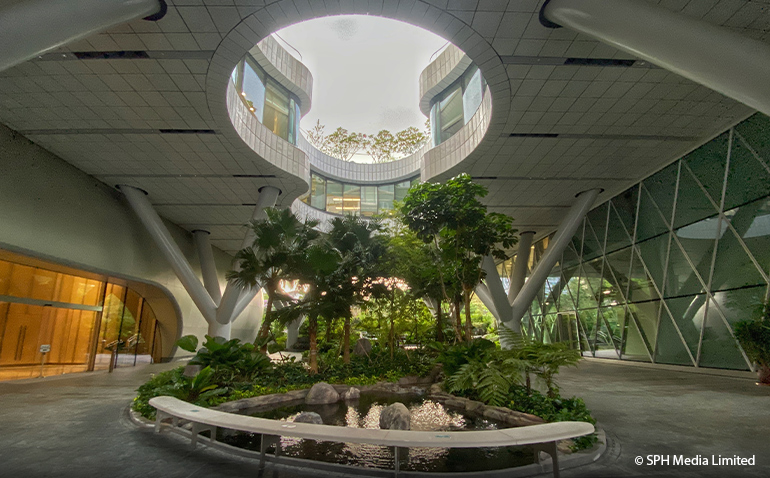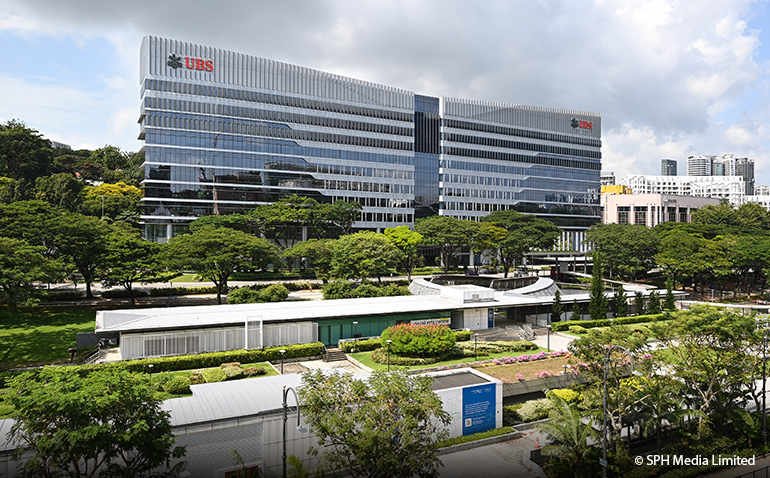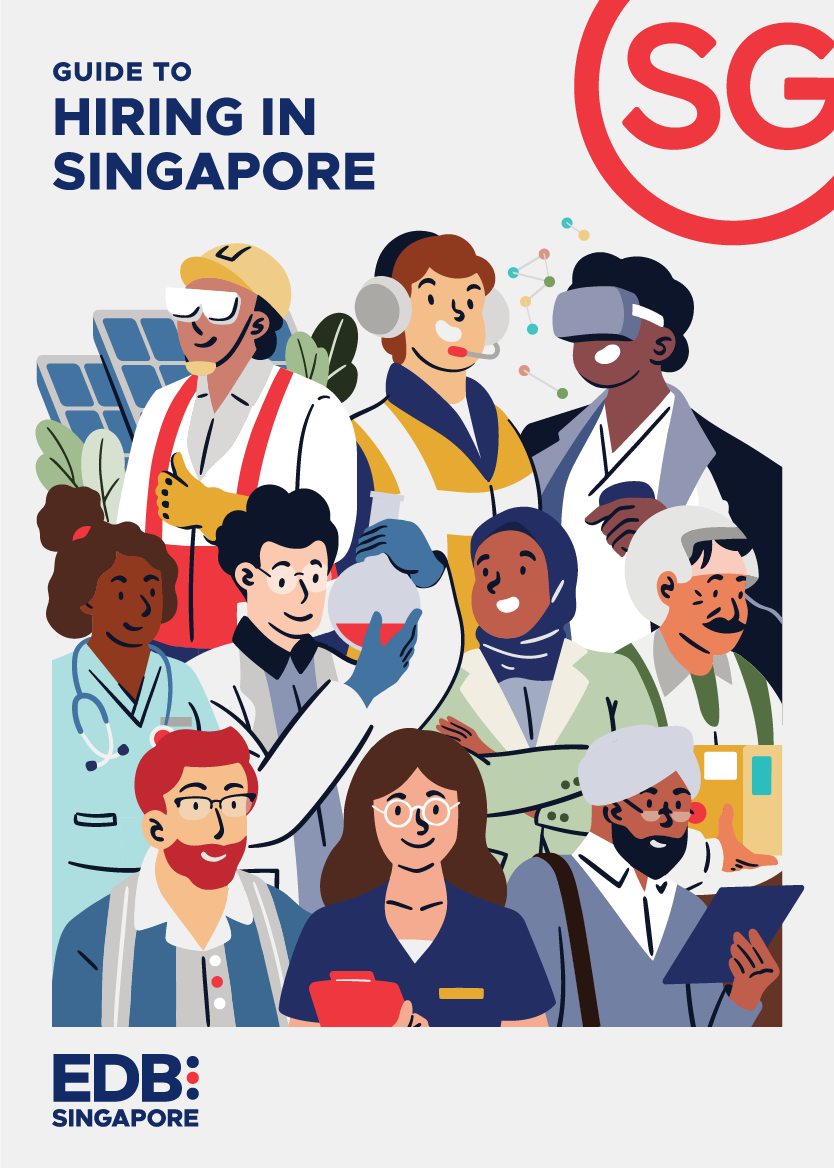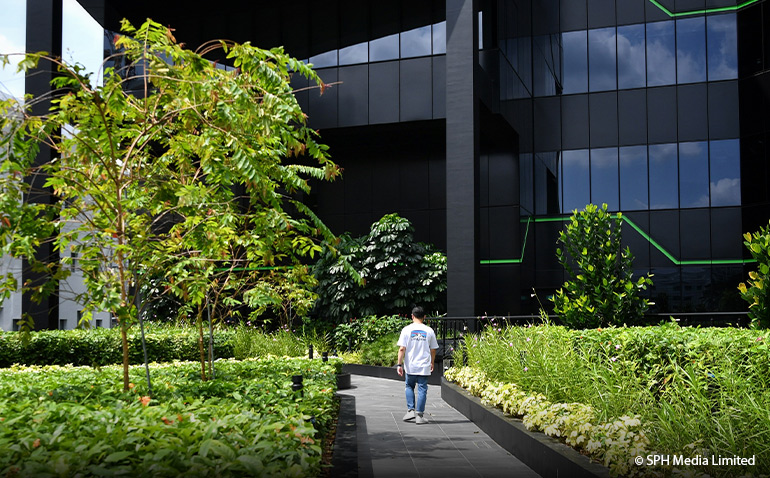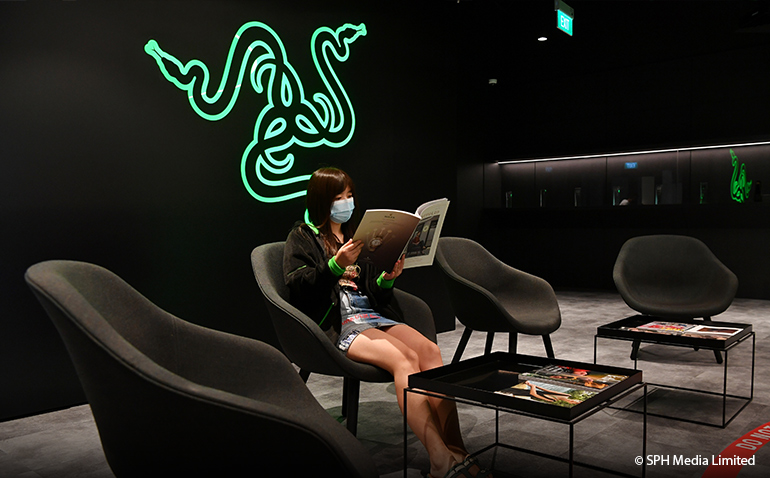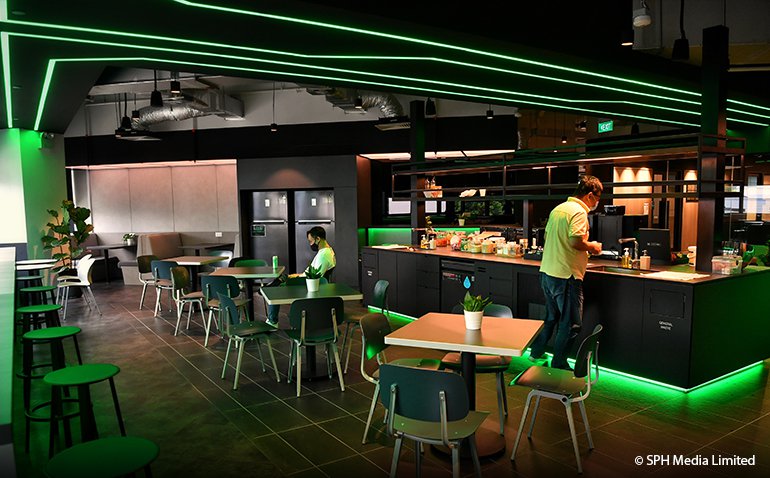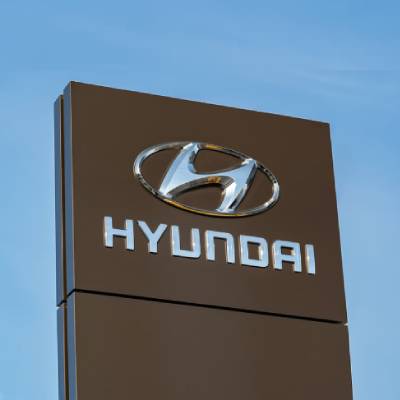Step into Wilmar International's headquarters in one-north business park and you will find yourself surrounded by greenery, birds and butterflies across various biomes.
Singapore-based agribusiness group Wilmar commissioned Eric Parry Architects in 2017, after it won an invited international design competition for the project.
The London-based practice, which established a local office in 2013, collaborated with home-grown firm RSP Architects Engineers and Planners, as well as other consultants and contractors, to realise the vision for the seven-storey tiered building, which was inspired by rice terraces in Asia.
The headquarters houses more than 850 employees, with amenities such as an extensive research laboratory, auditorium, a staff cafeteria, cafe, gym and a rooftop jogging track.
Wilmar is just one of many multinational corporations (MNCs) setting up their headquarters in Singapore, which is fast becoming a hub for companies looking to expand their presence in Asia, home to a rising middle class with growing spending power.
According to a 2021 report by global management consulting firm McKinsey, Asia is expected to account for half of global consumption growth by 2030, offering businesses a US$10 trillion (S$13.6 trillion) opportunity.
Separate studies conducted in 2018 by British-American insurance company AON and audit, tax and advisory services firm KPMG show that Singapore is home to the largest number of headquarter jobs from global Fortune 500 companies, compared with other key hubs in Asia.
A 2019 report by global professional services network EY said the city-state is home to about 4,200 regional headquarters, the largest number of regional headquarters in the Asia-Pacific region.
Google, one of the world's biggest technology companies, opened a sales as well as research and development office in Raffles Quay in 2007. It relocated to bigger premises at Mapletree Business City II in Pasir Panjang in 2016.
British technology company Dyson recently opened its global HQ at St James Power Station at 3 Sentosa Gateway, pledging a $1.5 billion investment in Singapore over the next four years as part of a $4.9 billion global investment drive.
It aims to hire more than 250 engineers and scientists in fields such as robotics, machine learning, artificial intelligence, sensing and vision systems.
Situated in the heart of Asia, Singapore offers attractive features such as ease of doing business, political stability, ready access to talent and world-class infrastructure for companies to expand in the region.
Ms Celia Sia, senior vice-president for hub services and connectivity at the Economic Development Board, says: "In the midst of global uncertainties, Singapore presents a trusted environment that upholds the rule of law and supports companies by being business-friendly.
"Companies can also rely on the skilled and reliable workforce in Singapore, and are therefore able to plan for the longer term as they continue to engage Singapore in new and expanded investments."
Other global players such as Zurich-based Swiss banking giant UBS and American-Singaporean multinational technology company Razer have also recently unveiled offices in Singapore that up the ante in workspace design.

